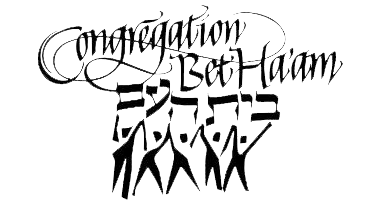by Rabbi Jared H. Saks
In the Talmud (Shabbat 21b), the Gemara asks, “What is Chanukah?” which honestly sounds like a strange question for the Sages to have asked. I mean, don’t they already know what Chanukah is? Of course they do, but that’s not really the point of their asking the question. Their motive is not to define Chanukah for themselves, but rather to teach the Jewish people about its meaning and purpose. The Gemara answers that Chanukah begins on the 25 Kislev and lasts for eight days. These days are meant to be celebratory, commemorating the miracle of the small cruse of oil that lasted for eight days when it should have only lasted for one.
We all know this story, but in all likelihood it is just that, a story. Historically, what really happened was that the small Hasmonean army had an unlikely victory over the greater Syrian Greeks. They reclaimed the Temple and had one day of rededication—the word ‘chanukah’ means dedication—and then they celebrated the seven-day festival of Sukkot, the holiday that they’d most recently missed, creating an eight-day holiday. So, if this is the case, why do we celebrate the story of the miraculous cruse of oil?
In The Jewish Way: Living the Holidays, Rabbi Irving Greenberg writes, “Not as tightly knit in paradigm, theme, and practice as the other holidays, Hanukkah lends itself to being a type of holy day Rorschach test. Every community and generation has interpreted Hanukkah in its own image, speaking to its own needs. When the Rabbis asked, ‘What is Hanukkah?’ their answer focused on the purification of the Temple and the miracle of the oil that burned for eight days. As a new spiritual leadership dealing with the religious challenge of Jewry’s survival after the loss of sovereignty and power, the Rabbis stressed the divine miracle to the exclusion of the military and diplomatic acts and the sovereignty exercised by the Maccabees. Similarly, medieval Jews focused on the divine miraculous activity in Hanukkah, protecting their own sense of helplessness and their longing for the messianic redeemer to do it all for them.” (p. 277)
The Rabbis’ decision to avoid the military narrative of Chanukah in light of their political reality, living under another empire’s control, makes sense. They wouldn’t have wanted to raise the suspicion of those nations, lest they think a revolt was brewing. More than that, I would hope that they were also distancing themselves from the Maccabees themselves. The Maccabees were fundamentalist religious zealots. They were intolerant of indifference. The books of First and Second Maccabees (in the apocryphal books of the Christian Bible) indicate that the Maccabees were so opposed to the Hellenization of Judaism that they turned against their fellow Jews who were adopting Greek culture.
As modern, progressive Jews we have interpreted Chanukah as a celebration of light and freedom, but the Maccabees were not actually proponents of religious liberty. It was their way or the highway, whether they were opposing the Syrian Greeks or their assimilated Jewish siblings. What right do we have to change the meaning of the holiday? What right did the Sages have in telling the story of the miracle rather than the military victory? Every right.
This is the nature of Judaism. When I work with our B’nai Mitzvah students on their divrei Torah (teachings on their Torah portions), I remind them that Torah is always the beginning of the story in Judaism. It’s never the end of the story. For thousands of years, our tradition has continued to adapt, holding on to the elements that speak to us and shedding the teachings and traditions that do not mesh with our modern sensibilities. This is true of all Judaism over the span of history, but even more so in our Reform Jewish tradition.
For us today, Chanukah is about light and freedom, because that is what it means to be a Reform Jew. Our tradition is one that honors what sets us apart from other people, but also one that stresses our connection with all of the inhabitants of the earth. As Reform Jews, we look at the rituals and traditions of our people. Sometimes we enact them as is. Sometimes we enact them as is, but with new layers of meaning. And sometimes we adapt or even abandon practices and rituals.
Sometimes Reform Judaism is maligned as being Judaism light, but we are anything but that. No doubt the Maccabees would not have been pleased with us, but what they would have thought of us should not be our concern. One of the central tenets of Reform Judaism calls on us to approach our Jewish lives through the lens of informed choice. We should learn about our traditions and then apply the practices that are personally meaningful, adapting them as fits our lives.
Rather than defining ourselves by the mitzvot we don’t observe, what if we took pride in the mitzvot we do observe. For example, Reform Jews like myself, who do not keep kosher, but choose to eat sustainably raised and ethically produced meat, might consider the mitzvot that we are observing: bal taschit (the prohibition against destroying creation, Deut. 20:19-20), workers’ rights (Deut. 24:14-15), and animal welfare (Deut. 22:6-7). When I was in rabbinical school, the Israel Movement for Progressive Judaism distributed bumper stickers that read יש יותר מדרך אחד להיות יהודי (yesh yoteir miderech echad lih’yot Yehudi), “there’s more than one way to be Jewish.” The Maccabees didn’t accept this, but when we celebrate Chanukah this year, we can make this the miracle that we celebrate.
Photo by Elisheva Gohar on Unsplash

